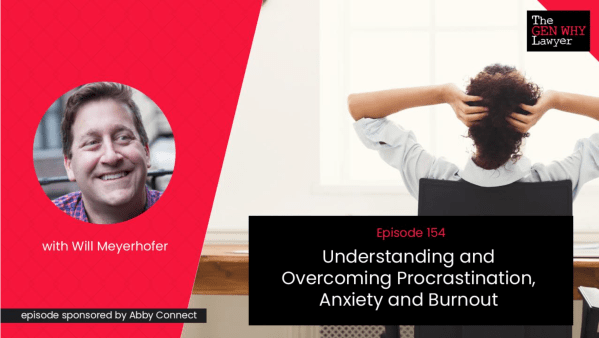 I get asked this all the time: “What if it’s only chemical?”
I get asked this all the time: “What if it’s only chemical?”
Good question. Why talk to a therapist if you can take a pill and be done with it?
Freud was intrigued by the possibility. According to Peter Gay, in Freud’s late work, “Outline of Psychoanalysis:”
“[he] speculated that the time might come when chemical substances would alter balances in the mind and thus make psychoanalytic therapy, now the best available treatment for neuroses, quite obsolete.”
It’s appealing to treat mental illness as a chemical problem because chemistry seems clean and precise. The fundamental functioning of the brain is both chemical and electrical, based on the difference in potentiality between sodium and potassium. No problem. You identify an imbalance, add ingredients, stir, and restore order.
But there is a problem. The brain is also a ball of flesh, soaking in countless compounds we scarcely comprehend.
Injecting a drug – one more chemical – into your bloodstream is a primitive way to fine-tune complex chemistry.
That’s why psychiatric drugs are most effective when blunt, simple results are called for. They can slow you down. They can speed you up. They can numb you or narrow your emotional bandwidth. If you are bi-polar, they may help stabilize your emotional swings. If you are psychotic, they may bring you back to reality, or at least closer to it.
 For subtler changes in brain chemistry, talk therapy – or maybe talk therapy in tandem with a drug treatment component – produces better results.
For subtler changes in brain chemistry, talk therapy – or maybe talk therapy in tandem with a drug treatment component – produces better results.
How could talking in a therapist’s office affect the chemistry of the brain?
Your emotions are chemicals. When you feel angry, your amygdala, a region in the center of your brain, releases a chemical signal. That chemical – or series of chemicals, is what you experience as “anger.” Joy, fear, sadness – all the emotions you feel as fundamental responses to the world around you – are chemicals.
 Your thoughts are also chemicals. When you admire a sunset, you are releasing chemicals which trigger electrical impulses that race through the circuitry of your brain.
Your thoughts are also chemicals. When you admire a sunset, you are releasing chemicals which trigger electrical impulses that race through the circuitry of your brain.
Your thoughts affect your emotions. So if I can affect your thoughts, I can affect the chemicals triggering your feelings.
The brain is extremely mutable – neural pathways can be rerouted. If I can make you aware of your thoughts and feelings, I can reroute the neurons in your brain, so different chemicals are released.
 This isn’t as far-fetched as it sounds. Here’s an example: If you are depressed and I tell you to go for a run because it will cheer you up, I’m not merely nagging. Aerobic exercise releases endorphins in your brain. These chemicals cheer you up, relieving depression.
This isn’t as far-fetched as it sounds. Here’s an example: If you are depressed and I tell you to go for a run because it will cheer you up, I’m not merely nagging. Aerobic exercise releases endorphins in your brain. These chemicals cheer you up, relieving depression.
In the process, you will also create a memory – a piece of stored chemical information – that links depression with going for a run and feeling better. A faint, newly formed neural link, and a piece of memory supporting that link, have been created.
Here’s another example: if you are denying your anger – the typical pattern that creates depression – and I arrange during a session of psychotherapy for you to address your father, or your mother, or your boss or your girlfriend, and you feel anger well up and put that anger into words, saying what you’ve kept silent for years…that’s going to have effects on the chemistry of your brain.
 When you get the words out, and feel your buried anger, new pathways will form between the ancient regions governing emotion in the center of the brain and more recently evolved cognition areas in the outer cortex.
When you get the words out, and feel your buried anger, new pathways will form between the ancient regions governing emotion in the center of the brain and more recently evolved cognition areas in the outer cortex.
New thoughts circulate new chemicals, create new memories, and effectively rewire the way you think.
You leave my office realizing you were angrier than you thought, and knowing it felt good to get it out. You experience a lightening of mood. Your girlfriend, when you get home, senses that you are less defended – your resistances are down. This alters her behavior towards you, and she starts to open up to you emotionally to a new degree. You begin questioning your old responses to her, and your old ways of doing things in general.
Your brain is flooded with new chemicals, and new pathways have been formed, that might, with further talk therapy, begin to replace old ones.
 Subtle changes have been made to the chemistry of your brain – to who you are, how you think, and how you behave with others.
Subtle changes have been made to the chemistry of your brain – to who you are, how you think, and how you behave with others.
That’s what psychotherapy is all about:
Better living through chemistry.
=========
If you enjoyed this post, please check out The People’s Therapist’s new book.
40.711126
-74.016309
Read Full Post »













 The larger issue we chewed on is that every therapist, by necessity, is a generalist – it comes with the territory. People are complicated, and diverse, and labels, while useful in some contexts, tend to blur important distinctions in others. We’re all a lot like everyone else – and completely unique, as well.
The larger issue we chewed on is that every therapist, by necessity, is a generalist – it comes with the territory. People are complicated, and diverse, and labels, while useful in some contexts, tend to blur important distinctions in others. We’re all a lot like everyone else – and completely unique, as well.
 I’m always hearing that I’m a downer, that all I ever write about is the negative side of law. Nothing could be further from the truth. If The People’s Therapist has one precept he lives by, it’s that old adage (okay, so maybe it’s a tenet) from management theory: Don’t bring me a problem unless you’re also bringing me a solution. It’s hardly my issue that all people ever seem to bring me (at least where law’s concerned) is problems. I’m drowning in their problems, and they must have the wrong guy, because I’m a constitutionally upbeat, constructive person – all about solutions, and upbeat ones, at that. Upbeat, constructive solutions are my forte. But these law people…what can I say? They just keep coming with the problems.
I’m always hearing that I’m a downer, that all I ever write about is the negative side of law. Nothing could be further from the truth. If The People’s Therapist has one precept he lives by, it’s that old adage (okay, so maybe it’s a tenet) from management theory: Don’t bring me a problem unless you’re also bringing me a solution. It’s hardly my issue that all people ever seem to bring me (at least where law’s concerned) is problems. I’m drowning in their problems, and they must have the wrong guy, because I’m a constitutionally upbeat, constructive person – all about solutions, and upbeat ones, at that. Upbeat, constructive solutions are my forte. But these law people…what can I say? They just keep coming with the problems. Mike DeBlis is an exhilarating interviewer. After chatting away merrily for nearly an hour, delving down into the issues in a refreshingly honest and unvarnished manner, he surprised me by nonchalantly announcing: “Will, this is great.” I, of course, enthusiastically agreed. Then he added, even more nonchalantly, “So, shall we begin recording?” I couldn’t think of anything else to say, but “sure.” And so we did.
Mike DeBlis is an exhilarating interviewer. After chatting away merrily for nearly an hour, delving down into the issues in a refreshingly honest and unvarnished manner, he surprised me by nonchalantly announcing: “Will, this is great.” I, of course, enthusiastically agreed. Then he added, even more nonchalantly, “So, shall we begin recording?” I couldn’t think of anything else to say, but “sure.” And so we did. I realized that’s the secret to how Mike gets such open, authentic, natural sounding podcasts for his series – he uses that first hour as the warm-up, to actually sit down and talk and talk and get to know his guests.
I realized that’s the secret to how Mike gets such open, authentic, natural sounding podcasts for his series – he uses that first hour as the warm-up, to actually sit down and talk and talk and get to know his guests.
 Our initial task as client and therapist – our work during the first few sessions – resembles cartography. I begin, like a map-maker, drawing a square or a rectangle, then sketching the outlines of landmarks visible from afar – the mountains, the sea, the rivers. In limning a life, the prominent features are obvious – where you were born, and when, where you grew up, what you do for a living, who your parents were and what they do, your siblings, if you have any, and your relationships with them, your partner, if you have one, and your relationship with him. I get the big stuff down, then step back, and try to make sense of it all – take “the lay of the land.” Later, I’ll add shading and nuance, and fill in the details – tiny inlets and hillocks, copses and rills.
Our initial task as client and therapist – our work during the first few sessions – resembles cartography. I begin, like a map-maker, drawing a square or a rectangle, then sketching the outlines of landmarks visible from afar – the mountains, the sea, the rivers. In limning a life, the prominent features are obvious – where you were born, and when, where you grew up, what you do for a living, who your parents were and what they do, your siblings, if you have any, and your relationships with them, your partner, if you have one, and your relationship with him. I get the big stuff down, then step back, and try to make sense of it all – take “the lay of the land.” Later, I’ll add shading and nuance, and fill in the details – tiny inlets and hillocks, copses and rills. The first step in the process comes as a question from the therapist. The phrasing of that “first question” gets debated when therapists gather. I trained with a colleague who invariably asked the same thing at each first session: “So what brings you here today?” That feels twisty and indirect to me. I usually start with “So how are you?” or, depending on my mood, or yours, “So how’s it going?” Sometimes there’s serious upset taking place in the here and now, that needs attending to right away. Before I sketch the background – the mountains and the sea and the rivers – I need to know if there’s a battle occurring on that stony plain, a castle under siege, a forest caught fire.
The first step in the process comes as a question from the therapist. The phrasing of that “first question” gets debated when therapists gather. I trained with a colleague who invariably asked the same thing at each first session: “So what brings you here today?” That feels twisty and indirect to me. I usually start with “So how are you?” or, depending on my mood, or yours, “So how’s it going?” Sometimes there’s serious upset taking place in the here and now, that needs attending to right away. Before I sketch the background – the mountains and the sea and the rivers – I need to know if there’s a battle occurring on that stony plain, a castle under siege, a forest caught fire.
 This month’s question for The People’s Therapist gets to the heart of how psychotherapy – “talk therapy” – actually works:
This month’s question for The People’s Therapist gets to the heart of how psychotherapy – “talk therapy” – actually works: I received the following letter concerning the tricky business of maintaining a relationship:
I received the following letter concerning the tricky business of maintaining a relationship: There’s a terrific opening scene in Stephen King’s novel, “Pet Sematary.”
There’s a terrific opening scene in Stephen King’s novel, “Pet Sematary.” An intriguing question from “A”:
An intriguing question from “A”: I get asked this all the time: “What if it’s only chemical?”
I get asked this all the time: “What if it’s only chemical?”
 For subtler changes in brain chemistry, talk therapy – or maybe talk therapy in tandem with a drug treatment component – produces better results.
For subtler changes in brain chemistry, talk therapy – or maybe talk therapy in tandem with a drug treatment component – produces better results. Your thoughts are also chemicals. When you admire a sunset, you are releasing chemicals which trigger electrical impulses that race through the circuitry of your brain.
Your thoughts are also chemicals. When you admire a sunset, you are releasing chemicals which trigger electrical impulses that race through the circuitry of your brain. This isn’t as far-fetched as it sounds. Here’s an example: If you are depressed and I tell you to go for a run because it will cheer you up, I’m not merely nagging. Aerobic exercise releases endorphins in your brain. These chemicals cheer you up, relieving depression.
This isn’t as far-fetched as it sounds. Here’s an example: If you are depressed and I tell you to go for a run because it will cheer you up, I’m not merely nagging. Aerobic exercise releases endorphins in your brain. These chemicals cheer you up, relieving depression. When you get the words out, and feel your buried anger, new pathways will form between the ancient regions governing emotion in the center of the brain and more recently evolved cognition areas in the outer cortex.
When you get the words out, and feel your buried anger, new pathways will form between the ancient regions governing emotion in the center of the brain and more recently evolved cognition areas in the outer cortex. Subtle changes have been made to the chemistry of your brain – to who you are, how you think, and how you behave with others.
Subtle changes have been made to the chemistry of your brain – to who you are, how you think, and how you behave with others. An interesting question that touches on some basic Freudian theory:
An interesting question that touches on some basic Freudian theory: A therapist colleague recently agreed with me that the funniest things we’d ever heard were told to us by our clients. Summer break (and the week of the bar exam) seems like an appropriate time for a laugh. So…without further ado…here are some of my clients’ funniest utterances from the past few years:
A therapist colleague recently agreed with me that the funniest things we’d ever heard were told to us by our clients. Summer break (and the week of the bar exam) seems like an appropriate time for a laugh. So…without further ado…here are some of my clients’ funniest utterances from the past few years:
 “My friends have a party game – match the most unlikely Asian surname to a Western given name. My personal favorite is ‘Tyrone Ramachandran.'”
“My friends have a party game – match the most unlikely Asian surname to a Western given name. My personal favorite is ‘Tyrone Ramachandran.'”














 I can’t complain.
I can’t complain.












 How does psychotherapy actually work?
How does psychotherapy actually work? In essence, the thinking you is forced to process material from the feeling you.
In essence, the thinking you is forced to process material from the feeling you. Patients often arrive at my office complaining of feeling “stuck.”
Patients often arrive at my office complaining of feeling “stuck.”












 Two famous pilgrimages:
Two famous pilgrimages:














 In Lennon’s case, it isn’t difficult to see the basis for the pattern. All Lennon fans know the familiar facts:
In Lennon’s case, it isn’t difficult to see the basis for the pattern. All Lennon fans know the familiar facts: The pattern is hard to miss: abandonment to nurturing to abandonment – back and forth and back and forth. Lennon lost his father, but had his mother. Then lost his mother. Then had his mother again. Then lost her again. She adored him, but couldn’t keep him – so back he went to Aunt Mimi. Then she adored him again, but died suddenly, leaving him utterly bereft and as afraid to trust love in any form as he longed for the love he’d once cherished.
The pattern is hard to miss: abandonment to nurturing to abandonment – back and forth and back and forth. Lennon lost his father, but had his mother. Then lost his mother. Then had his mother again. Then lost her again. She adored him, but couldn’t keep him – so back he went to Aunt Mimi. Then she adored him again, but died suddenly, leaving him utterly bereft and as afraid to trust love in any form as he longed for the love he’d once cherished. The borderline pattern is usually handed from parent to child. The parent exhibits this switch from one extreme to the other, and the child, attempting to adapt in response, begins to gyrate, too. In Lennon’s case, the events of his childhood were extreme, involving actual abandonment and the sudden death of a parent – so his pattern was particularly pronounced. By all accounts, John could be a very difficult person to deal with. His son Julian makes that clear in describing his few memories of his father, and even Sean, who barely knew his father, described him as having a strong temper and behaving unpredictably – affectionate sometimes, cruel and angry at others. The man who wrote “All You Need is Love” was indeed warm and loving and sincere and idealistic. He could also be vicious. That was the fearful child in John, fighting, unconsciously, to survive in a world fraught with the peril of abandonment and betrayal.
The borderline pattern is usually handed from parent to child. The parent exhibits this switch from one extreme to the other, and the child, attempting to adapt in response, begins to gyrate, too. In Lennon’s case, the events of his childhood were extreme, involving actual abandonment and the sudden death of a parent – so his pattern was particularly pronounced. By all accounts, John could be a very difficult person to deal with. His son Julian makes that clear in describing his few memories of his father, and even Sean, who barely knew his father, described him as having a strong temper and behaving unpredictably – affectionate sometimes, cruel and angry at others. The man who wrote “All You Need is Love” was indeed warm and loving and sincere and idealistic. He could also be vicious. That was the fearful child in John, fighting, unconsciously, to survive in a world fraught with the peril of abandonment and betrayal. If I worked with John Lennon, I would seek meticulously to be the same stable object each and every time he saw me. I would let him know I welcomed his anger just as I welcomed all his emotions, so long as he put everything into words instead of going into action on unexplored feeling. I would make certain he never received a response from me other than acceptance and support. The goal at all times would be to flatten out the gyrations – to offer a Middle Path, the path of the Buddha, the path of moderation.
If I worked with John Lennon, I would seek meticulously to be the same stable object each and every time he saw me. I would let him know I welcomed his anger just as I welcomed all his emotions, so long as he put everything into words instead of going into action on unexplored feeling. I would make certain he never received a response from me other than acceptance and support. The goal at all times would be to flatten out the gyrations – to offer a Middle Path, the path of the Buddha, the path of moderation. I would make sure Lennon knew I wasn’t like the people in his childhood. I would be there, the same old People’s Therapist, each and every time – offering support and understanding.
I would make sure Lennon knew I wasn’t like the people in his childhood. I would be there, the same old People’s Therapist, each and every time – offering support and understanding.